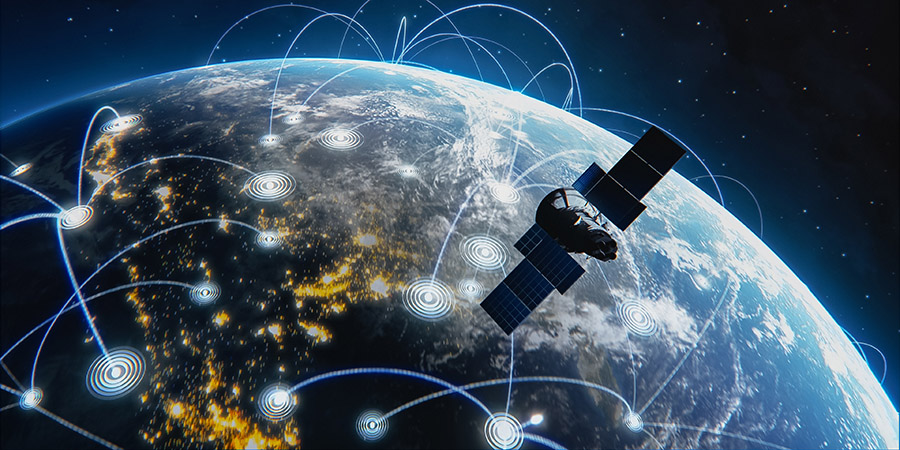Highlighting Indonesia’s global connectivity and investment potential, tech magnate Elon Musk's SpaceX has introduced Starlink internet services in Indonesia, underscoring the pivotal role of low Earth orbit (LEO) satellites in advancing worldwide communication and fostering economic expansion.
According to GlobalData, a prominent data and analytics company, international collaborations focused on improving low-latency data relay services leverage shared expertise and resources. This fosters an environment conducive to both economic progress and sustainable development.
LEO satellites are regarded by experts as essential infrastructure for bridging the digital divide; enabling advanced real-time data applications; fostering collaborative innovation; and strengthening economic resilience across industries such as aerospace and defense, telecom, agriculture, and oil and gas. Overall, integrating LEO networks into these industries enhances efficiency and productivity.
Telecom Review Exclusive Insights: The Connectivity Race: LEO Satellite Providers Take On Telcos
Read More: Evolution of Satellites: Broadcasting and Telecommunications
LEO Satellite Use Cases
In March 2024, US-based companies Viasat and Rocket Lab partnered to showcase on-demand, low-latency data relay services for LEO satellites. In the same month, US-based Telesat and ThinKom Solutions expanded their development partnership to validate ThinKom’s ThinAir Ka2517 antenna for use with the Telesat Lightspeed LEO satellite network. This certification aims to enhance the efficiency of real-time data applications.
In January 2024, US-based John Deere selected SpaceX’s Starlink LEO satellite network to supplement LTE coverage and drive efficiency for farmers using its connected and autonomous farm machinery.
In June 2023, US-based Momentum partnered with France-based Eutelsat and UK-based OneWeb to offer LEO satellite communications services for the oil and gas industry.
Read More: OneWeb LEO Satellites to Service NEOM, KSA, and MEA Region
The investment and economic prospects for LEO satellites are promising, however, the industry must address several challenges, including space debris management, frequency interference, and regulatory compliance. The ongoing collaborations aimed at merging satellite fleets represent significant steps toward addressing these challenges. They aim to ensure more efficient utilization of orbital space and enhance service reliability.
Moreover, strategic partnerships play a crucial role in overcoming these challenges, ensuring sustainable growth and the successful deployment of LEO satellite networks.
Read More: Orbiting Excellence: The Maturity of Satellite Tech










